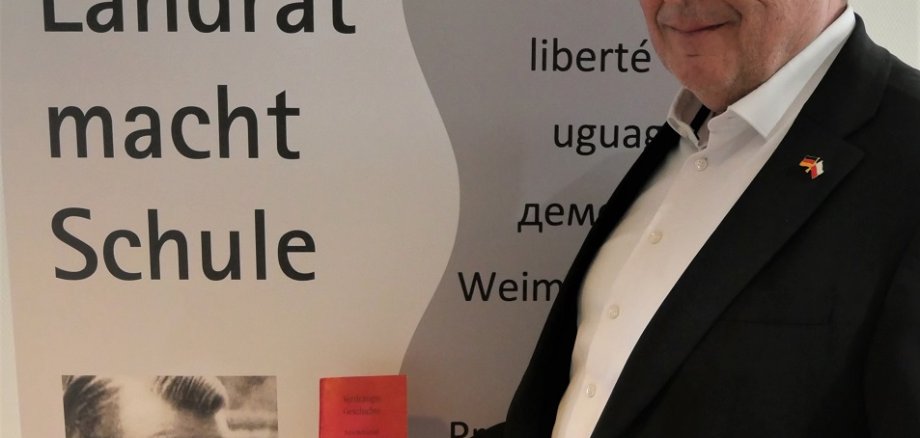The Holocaust, the Nazi genocide of European Jews, the Nazi terror against all those who opposed the regime, was a catastrophe of incomprehensible proportions. 27 January is the day of remembrance for the victims of National Socialism. According to estimates, the number of victims ranges up to 80 million people worldwide.
It is not only the freedom and democracy movement that is firmly rooted in the history of the Saarpfalz district. The period of National Socialism has left ugly and still painful traces. 27 January should be a day to become aware of this sometimes "repressed history". However, "Repressed History" is the title of a small, handy brochure published by the Saarpfalz district in 1995 under the conceptual and editorial direction of historian Martin Baus, now managing director of the Siebenpfeiffer Foundation. It is possible that this "other guide to the Saarpfalz district" has already been forgotten, especially as it is no longer available. Nevertheless, the brochure has lost none of its topicality and relevance to this day.
"There is nothing entertaining or entertaining about what can be visited with the help of this guide. Indeed, quite often there is nothing to see in the true sense of the word. The sites of inhumanity and barbarism have largely disappeared, been removed, suppressed. But this brochure is an attempt to provide answers to questions that are asked again and again: What was it like back then? After 1933, in our neighbourhood, in our family?" writes Martin Baus at the beginning.
Nazi rule, persecution and resistance in the Saarpfalz district from Bexbach to Homburg, St. Ingbert to Walsheim and Ormesheim are relentlessly described in 30 short articles. The choice of words is direct and anything but squeamish: "Shot, starved, croaked: The treatment of prisoners of war" reads one headline. The "Fates of the deportees" is also very moving, including the biography of the Polish girl Zofia Ptojewie, who was deported to the farm of the farmer Hennes in Oberbexbach as a forced labourer and died in a bombing raid together with a French prisoner of war.
Those responsible at the Saarpfalz district wanted to reflect on why all these atrocities could happen. "Especially at a time when narrow-minded National Socialist and stupidly racist ideas are gaining ground again, at a time when right-wing extremists do not shy away from murder and acts of violence and the past is repressed and denied, education and knowledge of one's own history is needed," it says in the foreword to the brochure.
"These words hit the nail on the head almost 30 years after they were published. I am deeply shocked that they could not be more topical," muses District Administrator Dr Theophil Gallo, recalling the Ulma couple, who hid two Jewish families during the German occupation of Poland in the Second World War despite the threat to their lives in order to save them from the Holocaust. However, Jozef and his heavily pregnant wife Wiktoria were betrayed and shot with their six children and the eight Jews they had hidden on 24 March 1944. "On behalf of the millions of victims of terror and war, we must never forget this family. She was beatified on 10 September 2023. 27 January is also a reminder to take responsibility towards young people and all our fellow human beings. We must instruct them and make them aware that we must all live up to the responsibility that has arisen from the crimes of our forefathers," emphasised the District Administrator, who also took the opportunity to repeatedly recall the landmark speech given by former Federal President Richard von Weizsäcker in the German Bundestag on 8 May 1985, a speech that changed the world, or at least certainly changed it in part. "The Saarpfalz district, together with its European partner districts, proclaimed the Decade of Remembrance on 9 November 2023. Constantly raising awareness of the significance of 27 January is part of this responsible remembrance work," said District Administrator Dr Theophil Gallo.
Background
Since 1996, 27 January has been enshrined in law as a day of remembrance for the victims of National Socialism. In 2005, the United Nations declared 27 January the International Day of Commemoration in Memory of the Victims of the Holocaust. This date was chosen because on 27 January 1945, shortly before the end of the war, the Ausschwitz-Birkenau concentration camp, where over one million people were murdered during the Second World War, was liberated by the troops of the Red Army (Soviet army and air force).
